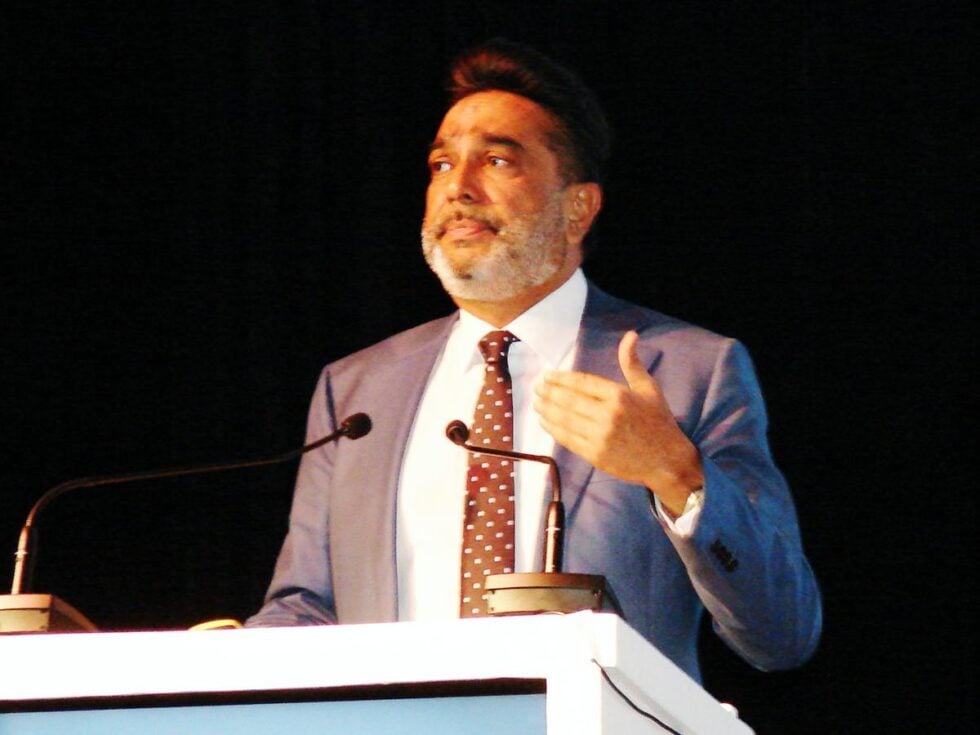
In this instance, he was alluding to countries that have tried to implement universal health coverage (UHC), or national health schemes, but were faced with stumbling blocks such as high administration costs and fraud, waste and abuse.
Examples cited were Kenya and Ghana: “Kenya has achieved 20% coverage and Ghana 36%, but look at their administration costs!” he exclaimed, showing that the National Health Insurance Fund in Kenya spends more on admin even though the coverage is lower than other comparative peers.
“Both NHIF Kenya and the National Health Insurance Service (NHIS) in Ghana need to increase efficiency at lower admin costs and more coverage,” he added, making the point that there were countries that have been “so good with the way they are managing their admin costs.”
“We have already heard about fraud waste and abuse. If we can contain that alone imagine how much more health we can produce? We don’t need more money for health, we actually need more health for money! We could produce twice as much health if we were able to just drive down all the waste and abuse and improve efficiency.”
Estonia, Thakker went on, was a case in point: “Estonia has 95% coverage, 98% benefit space and 1% admin – clean as a whistle! We don’t have the luxury to waste a single dollar. The more dollars we waste, the worse every national health scheme will become.”
Turning to scheme design per country, these, Thakker insisted, had to be “tailor-made”: “You can learn and see what other countries have done but there is no way you can copy and paste. There is absolutely no silver bullet about UHC in the world. The NHS in the UK has its own challenges, we know Germany has challenges, so has Japan and so has Thailand.
“You have got to tailor-make the entire scheme for each household and the population, based on factors such as the country’s model, infrastructure, doctor availability, and connectivity.”
Critical in this development is stakeholder engagement, an “all hands on deck” approach.
“Can the private sector and national schemes work side by side?” Thakker asked.
“I don’t think the question should be ‘can’ but every country in Africa should discuss how the private sector can work-side-by-side for a national health scheme to help patients receive better care. Is it possible? Absolutely!” he exclaimed.
“Every country that has achieved an amazing amount of coverage with a national health scheme has done so through working with both the public and private sector. Any country that thinks they can do it alone have got the wrong foot print!
“If you don’t have stakeholder engagement,” Thakker concluded, ”everywhere around the world we have noticed national health schemes crumble It requires all hands on deck, it requires public and private participation alike, it needs one custodian and it is all about getting everyone on board to have smooth, effective household cover that will make the country move into prosperity.”